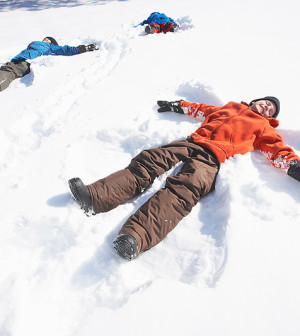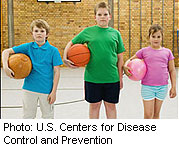- 10 Strategies to Overcome Insomnia
- Could Artificial Sweeteners Be Aging the Brain Faster?
- Techniques for Soothing Your Nervous System
- Does the Water in Your House Smell Funny? Here’s Why
- Can a Daily Dose of Apple Cider Vinegar Actually Aid Weight Loss?
- 6 Health Beverages That Can Actually Spike Your Blood Sugar
- Treatment Options for Social Anxiety Disorder
- Understanding the Connection Between Anxiety and Depression
- How Daily Prunes Can Influence Cholesterol and Inflammation
- When to Take B12 for Better Absorption and Energy
Want Your Kids to Exercise? Skip the Guilt


Trying to “guilt” kids into exercise may not work, a new study suggests.
Researchers from the University of Georgia found that middle school students were less likely to be physically active if they didn’t feel in control of their exercise choices or if they felt pressured by adults to get more exercise.
Kids who felt they could make their own decisions about physical activity were more likely to regard themselves as someone who exercises, which made them more likely to do so, the researchers said.
That raises the question, “Can we put these children in situations where they come to value and enjoy the act of being physically active?” lead author Rod Dishman, a professor of kinesiology, said in a university news release.
Children’s activity levels typically fall 50 percent between fifth and sixth grades, the authors noted in the September issue of the journal Medicine & Science in Sports & Exercise.
Dishman and his colleagues said they are looking for ways to help more children identify themselves as someone who exercises.
“Just like there are kids who are drawn to music and art, there are kids who are drawn to physical activity. But what you want is to draw those kids who otherwise might not be drawn to an activity,” Dishman said.
Above all, parents and teachers shouldn’t make children feel guilty for not being physically active, he said.
“The best thing is to do it because it’s fun. It’s the kids who say they are intrinsically motivated who are more active than the kids who aren’t,” Dishman concluded.
More information
The U.S. Centers for Disease Control and Prevention has more about keeping children active.
Source: HealthDay
Copyright © 2026 HealthDay. All rights reserved.










